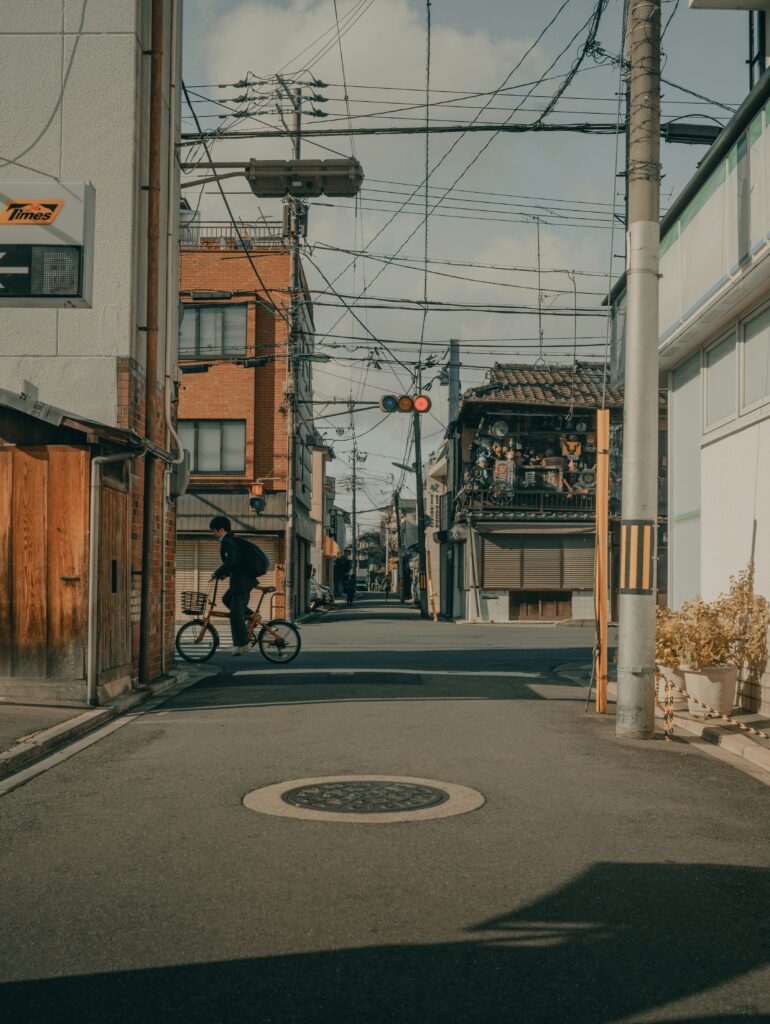 Before you leave
Now that you have found an internship, it is a good idea to start searching for acc
ommodation. Fortunately, this does not have to be hard when you are staying in a big city. There are several websites where you can apply for a room. A few examples of these websites are Sakura House, Borderless House, Fujimi House, and Fresh House. On these websites, you can fill in areas where you would like to stay and see which rooms are available.
Arrival
Before you leave
Now that you have found an internship, it is a good idea to start searching for acc
ommodation. Fortunately, this does not have to be hard when you are staying in a big city. There are several websites where you can apply for a room. A few examples of these websites are Sakura House, Borderless House, Fujimi House, and Fresh House. On these websites, you can fill in areas where you would like to stay and see which rooms are available.
Arrival
 When you arrive at the airport, you might have traveled for a long time. At this point you do not want to carry your luggage and want to rest. Fortunately, there are services at the airport that will ship your luggage to your hotel or room ! You can make a reservation or just show up when you arrive. If you arrive in the morning, you might be able to get same-day delivery! It is more convenient for you and if you plan on traveling by public transport from the airport , also much appreciated by the people around you. If you are arriving later in the day, no problem, you can have your luggage delivered on the next day. Just make sure you have your essentials with you for the first night.
An important next step would be public transport. In Japan, this is arranged very well. It is easy to buy tickets or a transportation card at the station and all the screens have an English option as well. If you want to buy a transportation card , such as Suica or Pasmo, you can do so at the airport or in a JR train station, they can be charged at any train- or metro station. It is also possible to have a transportation card on your phone.
The trains operate very regularly, if you are not on time for your train, you only have to wait for about five minutes until the next train arrives. Do keep in mind that the last trains leave around midnight.
SIM card and phone number
If you intend to stay in Japan for a while, it is useful to get a Japanese SIM card. Although you can find free Wi-Fi almost everywhere in the big cities, it assures you of always being able to find where you need to go . Some official organizations also require you to have a Japanese phone number. It is possible to arrange this when you arrive. Temporary SIM cards can be purchased at the airport, although these might not have a phone number, only data. (mobal.com ?)
Register
If you will stay for more than 3 months, you must register at the local branch office. This must be done within two weeks after moving into your accommodation. For this, you need a Japanese phone number, your passport, and your residence card. The employees of the branch office can speak English or they have a translation device. Here you can also arrange Japanese health insurance. You are obligated to get Japanese health insurance. If the company where you follow your internship offers health insurance, you do not have to get it again at the branch office.
Groceries
As you might know already, Japan has a lot of “konbinis”. These are convenience stores that are open 24/7. The most famous ones are 7-Eleven, FamilyMart, and Lawson. You can find them in almost every street. In konbinis, you can buy food and drinks, but also towels, body care products, umbrellas, and magazines. Usually, there are ATMs and free Wi-Fi that you can use.
Konbinis are very easy to go to, however, for groceries, it might be better to go to a supermarket close to your accommodation. These have a larger offer of products and are generally a lot cheaper as well.
Bank account
When staying in Japan for more than six months, you might have to open a Japanese bank account. For most banks, this can only be done after living in Japan for six months. There are a variety of banks that can be used, both online and physical ones.
If you are staying in Japan for less than six months, your own credit card or debit card is enough. Debit cards can be used in stores if they are Mastercard or Visa. Otherwise, cash is still used a lot in Japan, therefore you could also use an ATM that accepts international cards and pay by cash.
When you arrive at the airport, you might have traveled for a long time. At this point you do not want to carry your luggage and want to rest. Fortunately, there are services at the airport that will ship your luggage to your hotel or room ! You can make a reservation or just show up when you arrive. If you arrive in the morning, you might be able to get same-day delivery! It is more convenient for you and if you plan on traveling by public transport from the airport , also much appreciated by the people around you. If you are arriving later in the day, no problem, you can have your luggage delivered on the next day. Just make sure you have your essentials with you for the first night.
An important next step would be public transport. In Japan, this is arranged very well. It is easy to buy tickets or a transportation card at the station and all the screens have an English option as well. If you want to buy a transportation card , such as Suica or Pasmo, you can do so at the airport or in a JR train station, they can be charged at any train- or metro station. It is also possible to have a transportation card on your phone.
The trains operate very regularly, if you are not on time for your train, you only have to wait for about five minutes until the next train arrives. Do keep in mind that the last trains leave around midnight.
SIM card and phone number
If you intend to stay in Japan for a while, it is useful to get a Japanese SIM card. Although you can find free Wi-Fi almost everywhere in the big cities, it assures you of always being able to find where you need to go . Some official organizations also require you to have a Japanese phone number. It is possible to arrange this when you arrive. Temporary SIM cards can be purchased at the airport, although these might not have a phone number, only data. (mobal.com ?)
Register
If you will stay for more than 3 months, you must register at the local branch office. This must be done within two weeks after moving into your accommodation. For this, you need a Japanese phone number, your passport, and your residence card. The employees of the branch office can speak English or they have a translation device. Here you can also arrange Japanese health insurance. You are obligated to get Japanese health insurance. If the company where you follow your internship offers health insurance, you do not have to get it again at the branch office.
Groceries
As you might know already, Japan has a lot of “konbinis”. These are convenience stores that are open 24/7. The most famous ones are 7-Eleven, FamilyMart, and Lawson. You can find them in almost every street. In konbinis, you can buy food and drinks, but also towels, body care products, umbrellas, and magazines. Usually, there are ATMs and free Wi-Fi that you can use.
Konbinis are very easy to go to, however, for groceries, it might be better to go to a supermarket close to your accommodation. These have a larger offer of products and are generally a lot cheaper as well.
Bank account
When staying in Japan for more than six months, you might have to open a Japanese bank account. For most banks, this can only be done after living in Japan for six months. There are a variety of banks that can be used, both online and physical ones.
If you are staying in Japan for less than six months, your own credit card or debit card is enough. Debit cards can be used in stores if they are Mastercard or Visa. Otherwise, cash is still used a lot in Japan, therefore you could also use an ATM that accepts international cards and pay by cash.


 CULTURE
CULTURE  EVENTS
EVENTS  HOUSING
HOUSING  INTERNSHIP
INTERNSHIP  RESOURCES
RESOURCES